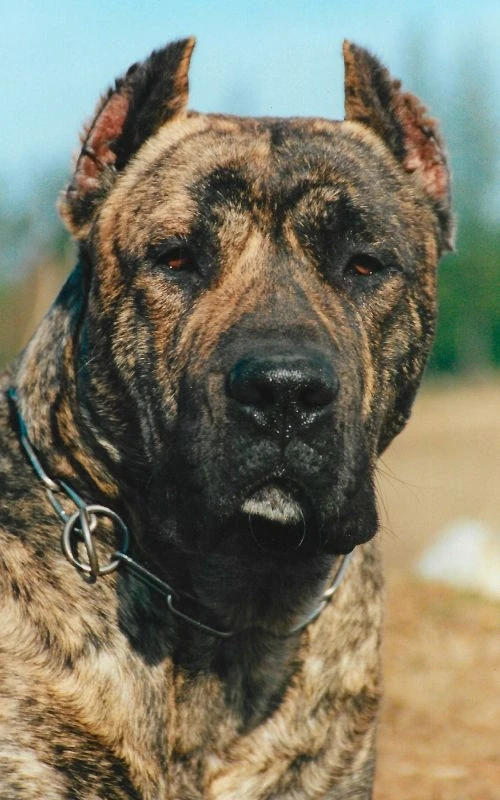
Perro de Presa Canario
About
The Perro de Presa Canario is a strong, loyal, and protective breed that thrives in homes with experienced and confident owners. With their imposing appearance, intelligent nature, and deep devotion, they make excellent guardians and companions when properly trained and socialized. This breed’s combination of power, loyalty, and vigilance makes them a cherished choice for those seeking a dedicated and formidable canine friend.
 Breed Size
Breed Size
-
Weight (Male)
38-50 kg
-
Weight (Female)
38-50 kg
-
Height (Male)
56-66 sm
-
Height (Female)
56-66 sm
 Coat
Coat
-
Fur Type
Smooth
-
Color
One color
 Care
Care
-
Walk
>45 minutes/day
-
Breed group
Foundation Stock Service
-
Breed Size
L
-
Demeanor category
Aloof/Wary
 Breed Traits
Breed Traits
-
Barking
-
Good with young children
-
Drooling
-
Energy level value
-
Grooming frequency value
-
Good with other dogs
-
Trainability
 Breeds Club Recognition
Breeds Club Recognition
-
Trainability Category
>Agreeable
-
Temperament
>Confident, Calm, Strong-Willed
